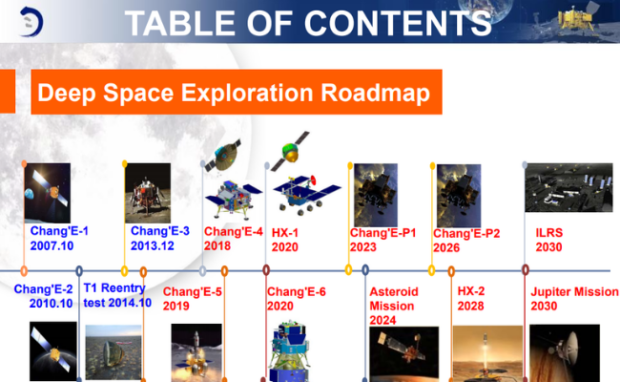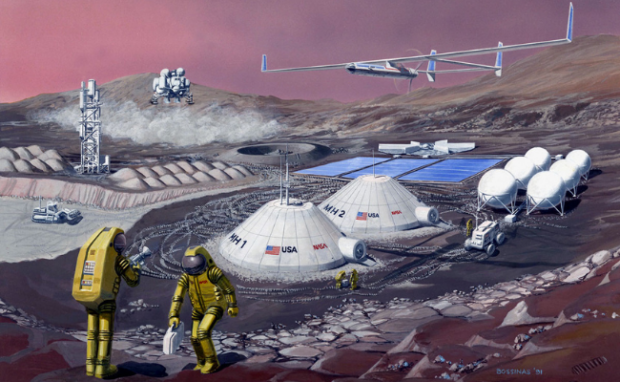China’s roadmap for space mining unveiled
Humanity may become an intergalactic species soon. China recently announced its plans to explore the solar system and extract resources to create a space economy. On August 31, 2023, the country’s space experts proposed a four-stage roadmap for a space resources utilization project that would eventually encompass the solar system by 2100.
It’s amazing how humanity started from rubbing sticks to make fire to reaching the Moon and other planets. Soon, our ingenuity and determination may enable us to harness the heavenly bodies to progress ourselves. It was unbelievable to send people beyond the skies, but we will soon answer another question, “Can we get much higher?”
This article will discuss the ambitious China space development program. Later, I will show you another similar project from the United States.
What’s in the China space roadmap?

Photo Credit: planetary.org
China Aerospace Science and Technology Corporation scientist Wang Wei and the Chinese Academy of Sciences proposed a four-stage roadmap to extract space resources. They named it the “Tiangong Kaiwu” or “The Exploitation of the Works of Nature.”
The name comes from an encyclopedia by Song Yingxing, a Ming Dynasty scientist. Of course, the modern version is greater because it plans to create a space economy. Here’s what’s inside the roadmap:
- Mining ice and water on the Moon, Mars, Jupiter’s moons, and near-Earth asteroids
- Building space resource mining and processing stations
- Plotting space transportation networks for people and resources
- Adding more plans to develop the solar system by 2035, 2050, 2075, and 2100
China Aerospace News said it will “provide new ideas and methods to solve global problems such as resource scarcity, energy crisis, and environmental pollution, and inject new ideas and methods into the sustainable development of the Earth.”
The news outlet conducted initial statistics on 997 asteroids and found that 701 are worth more than 100 trillion US dollars. Also, there are 122 near-Earth asteroids more suitable for mining worth more than $750 trillion.
You may also like: KCAT, Inc. ramps up cybersecurity with Globe Business
Harnessing these space boulders could solve scarcity problems on Earth. Hence, the website says, “In the future, the ability to develop space resources will surely become an important scientific and technological capability in the competition for economic strength among countries and will also become a new economic growth point for major space powers.”
China Aerospace Science and Technology Corporation academician Wang Wei believed:
“Just like the miracles in the Age of Discovery, the ‘Great Space Age’ represented by the development of space resources will expand new space for human survival and development, create the next miracle in the history of human development, and bring new prosperity to human civilization.”
How will the US create a space economy?

Photo Credit: nasa.gov
The United States has been dominating the Space Race for years, so it’s not surprising it will try to harness outer space, too. The Defense Advanced Research Projects Agency (DARPA) announced its LunA-10 project will study how humans can live on the Moon. DARPA Strategic Technology Office program manager Michael Nayak explained his organization’s plans:
You may also like: Astranis brings satellite internet to the Philippines
“For 65 years, DARPA has pioneered and de-risked technologies vital to civil space advancement. LunA-10 continues this rich legacy by identifying and accelerating key technologies that may be used by government and the commercial space industry, and ultimately to catalyze economic vibrancy on the Moon.”
The organization prioritizes the development of essential industries like construction, communications, sciences, medicine, and mining. Also, Nayak explained, “We set out to talk with NASA, figure out what they’re doing, figure out what their roadmap is.”
“And then see if there are other complementary investments that we can make to significantly advance the state of the art that align with your typical DARPA missions,” he added.
Conclusion
The latest China space roadmap aims to extract resources from the Moon, asteroids, and planets. As a result, it will create a space economy that will progress human civilization to the next level.
Space News says this plan is still a proposal. It only shares possible long-term space exploration and exploitation plans for the country. The Tiangong Kaiwu also doesn’t address various concerns.
For example, it doesn’t elaborate on budgets, hardware, and economic feasibility. Still, the United States and other countries are considering a space economy seriously. Check out more digital tips and trends at Inquirer Tech.